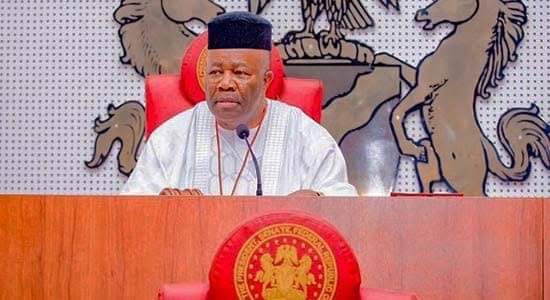Elections: Bad Judges Have Ruined Judiciary’s Reputation, No Hope For Common Man Again — Igini Exposes Most Corrupted Judges In Nigeria
Elections: Bad Judges Have Ruined Judiciary’s Reputation, No Hope For Common Man Again — Igini Exposes Most Corrupted Judges In Nigeria
Former Resident Electoral Commissioner, REC, in Akwa Ibom State, Mike Igini, has said it was a worrisome situation that some Nigerian judges have ruined the reputation of the judiciary.
Igini also said he would never be part of any plot or design to deceive Nigerians.
Recall that many Nigerians, including those in the Diaspora, had accused Igini of deceiving the public through his weekly voters’ and civic education before the February 25 presidential and National Assembly elections where he had assured that with the BVAS and the iREV, the elections would be transparent, credible, free and fair.
Besides, some Nigerians have accused the judiciary, especially judges, of not rising to the occasion when it mattered most and had allowed themselves to be compromised by politicians.
Responding to a question that the judiciary in the country appeared to have lost its reputation, where monetary inducement had become the deciding factor in delivering judgements, Igini said though some bad eggs had given the judiciary a bad name, there were still good ones that could be relied upon.
The former REC, who is a senior lawyer, said: “Well, the situation in my constituency (judiciary) is worrisome and disturbing particularly when both serving and retired judicial officers and even members of the public express lack of confidence in the judicial system.

“That is the most dangerous level of discredit that, members of the bar and particularly the bench must not allow the system to degenerate to, otherwise we are in big trouble.
“As a lawyer, l feel diminished and ashamed that politicians, the majority of whom are not lawyers, semi-educated money-bag politicians could be allowed to bring our noble profession to this level of opprobrium, resentment and distrust from members of the public who no longer respect us because of the unethical conduct of some members of the bar, particularly the bench.
“I repeat, some members because we have shining members of both the bar and the bench who are exemplary and worthy of emulation. But the very bad ones have ruined our collective reputation.
”These politicians brag and boast about what they do with members of my constituency to get whatever they want and that is why they are quick at telling opponents to go to court after compromising collation and returning officers.
“Is it not surprising that politicians who go all out to undermine electoral laws and rig elections are the ones that will tell people to go to court? As noted very correctly by the learned Silk Agbakoba, the recent decision of the Supreme Court like others in favour of individuals that didn’t participate in party primaries has further affected public confidence and this is very unfortunate because of the timing of the decision so close to the 2023 election.”
On what Nigerians, especially people not satisfied with the outcome of the just concluded election should expect from the court, he said: “Judiciary must stand tall and mighty in defence of democracy and the rule of law.
”We have to go about solving this problem the way the United Kingdom itself introduced Nigeria into election rigging ended electoral rigging and fraud such that for a period of almost one hundred (100) years precisely 99 years, there was no post-election petition adjudication in England till 2010 with respect to Liberal Democrats.
“Historically, the UK was one of the notorious countries noted for vote buying and election rigging and because of the concern that such practice of use of money could be used by politicians also to capture the judiciary in England by buying judges if the courts were to adjudicate on electoral disputes, allegations of electoral malpractices by way of election petitions were initially determined by parliament and not the courts to insulate the judiciary from potential corruption.
“However, parliament with majority party members expectedly could not deliver electoral justice to opposition petitioners for years. Consequently, it was decided that the courts in England should assume jurisdiction over post-election petitions, and that was how the court became involved.
”But mindful of the fact that the ills of corruption that prevented justice from being served to petitioners in parliament could be transferred to the courts, parliament had to pass the 1872 secret ballot Act, Electoral corruption and illegal practice Act of 1872 as well as the 1883 ballot Act with a range of consequences such as expulsion from parliament, a ban for seven years from politics or for life from politics.”
went through during the elections and their unmet expectations.
“We are in this agonizing moments of pains together, l have been down emotionally and still in shock over the level of deviation from established laws, issued guidelines and procedures that we all signed into and that l leveraged on, honestly and faithfully to call on Nigerians to participate fully to determine their leaders.
“I will never be part of any plot or design to deceive Nigerians, may such a day never come in my life time. My votary and passion for free, fair and credible elections in Nigeria did not begin in 2023. Those who have diligently followed my advocacy for election integrity will remember my zealous exertions and subsequent detention in Enugu before and after the annulment of the June 12 Elections in 1993, many also will recall my participation in CODER for electoral reforms after the fiasco that was described as the 2007 General election.
“Those who are keen about elections will also recall how I took the same passion to my supervisory roles in the regulation of the electoral process as a Resident Electoral Commissioner in Cross River, intervention missions in Anambra, lmo state Guber elections in both 2011 and 2015, Edo, and later Akwa-Ibom states. Frankly, l don’t think l did anything wrong by the weekly voters’ and civic education that l gave to Nigerians without being paid a dime at a time that l had offers for consultancy that l politely declined because l wanted to be objective in seeing to the implementation of the process that l was part of putting in place before my tenure ended last year.”











































